Award winning Ascent series – the next level sustainable beam seater
The in-house design team at Green Furniture Concept has designed one of the world’s most sustainable and modular beam seating systems for public spaces. Just recently, Ascent received the Archiproducts Design Awards 2020.
Ascent Series - emotional and functional design empowered by sustainability
“The idea for our new Ascent Series was born out of discussions and workshops with architects on the topic of how the future public space will look like. The public space has changed drastically in design and technology, but somehow the furniture still looks the same as it did in the 50s—straight rows of seating with no added value than a place to sit. We wanted to challenge that and create something playful and functional that welcomes the user to interact”, Jonas Ekholst, Head of Design at Green Furniture Concept.
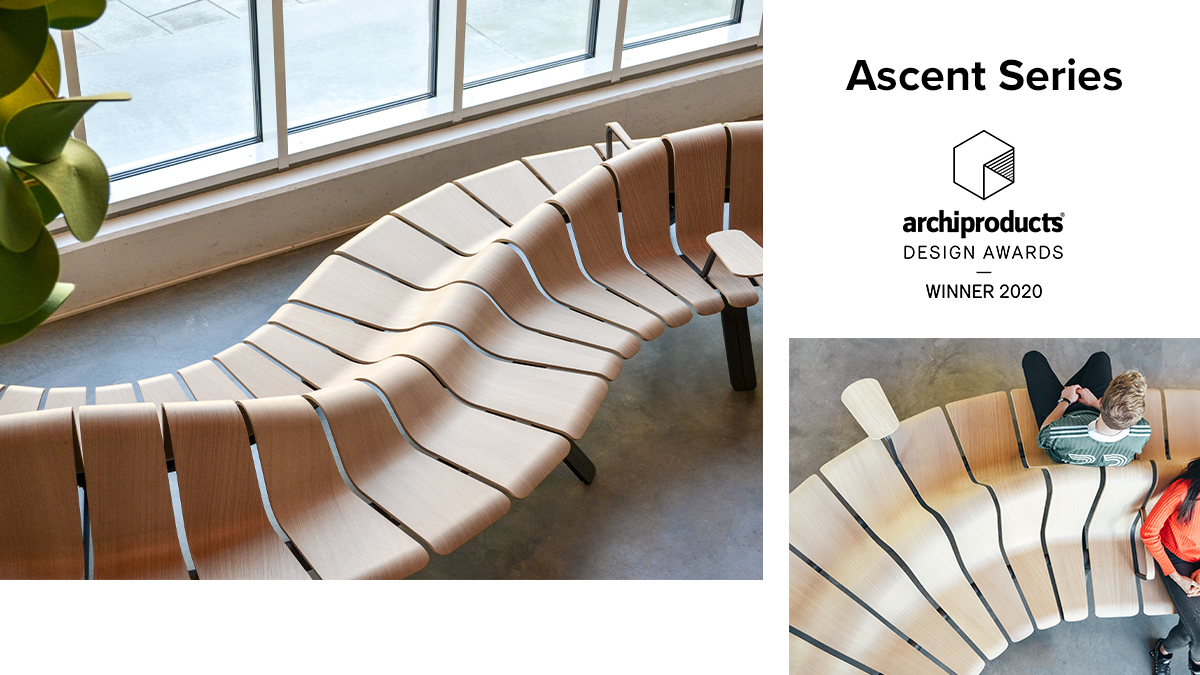
The future of beam seater is modular and invites for interaction
The new Ascent Series is a modular beam seating system designed for large-scale interiors and waiting areas. Gently curved and a triumph of three-dimensional design, Ascent is unique, placemaking, configurable, and truly seamless. Architects are sure to recognize and celebrate the possibilities. With Ascent, the limitations of straight-backed, straight-angled beam seaters are no more. This new series can be configured to fit the structure of any building and guide people’s flow. Also, Ascent creates 30-40% more space than conventional seating systems. The modular concept offers the possibility to reconfigure and adapt quickly when new demands are needed in the ever-evolving public spaces.
Material choices for a circular design
Since sustainability is a foremost priority, Green Furniture Concept has teamed up with Hydro to introduce CIRCAL. A low-carbon aluminum, guaranteed to contain at least 75% post-consumer recycled material, was used for the beams.
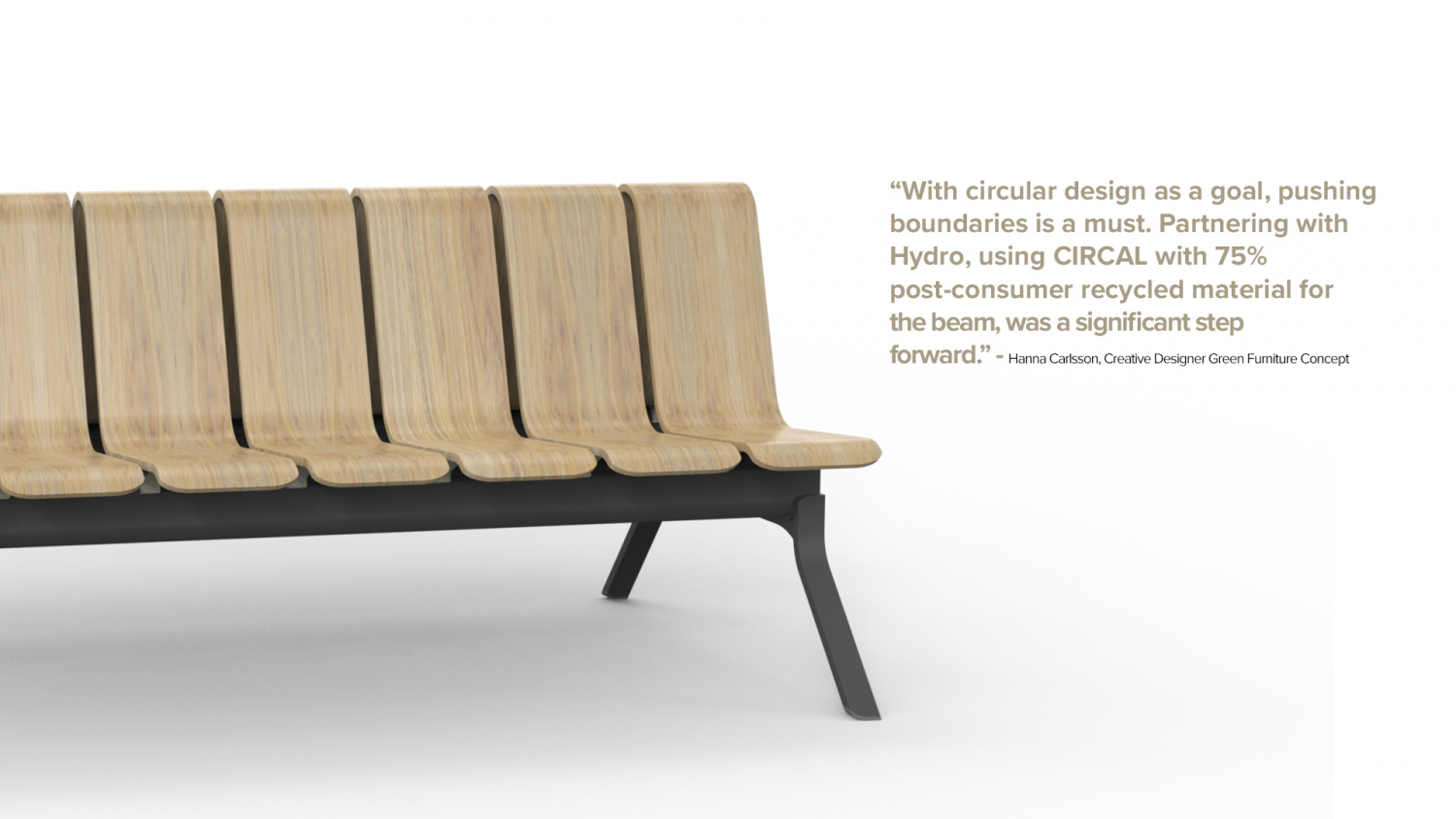

Together with the use of certified wood, 100 % recycled ocean plastic, more than 90 % recycled post-consumer steel and a circular design of the product and buying model itself, this makes up for a product that is more sustainable than any other beam seater out there.
Joakim Lundgren, Head of Sustainability, Green Furniture Concept.Modular concept to create a unique place
“The Ascent series is emotional, but at the same time, highly intelligent interpretation of a beam seater. At first, you will notice the flowing shapes and warm texture of the wood. Architects can use their inner child to play and build floor plans, both two- and three-dimensional, with the unique transition modules. Our Scandinavian design heritage is visible through a minimalistic and honest design, inspired by the mountains and ocean around us. Secondly, you will be happy to see that all the requirements are there. Easy to clean, reconfigurable, stackable, hidden electricity, tables, armrests, chargers, easy to maintain and future proof with an ever-evolving series.”, as described by Jonas Ekholst.
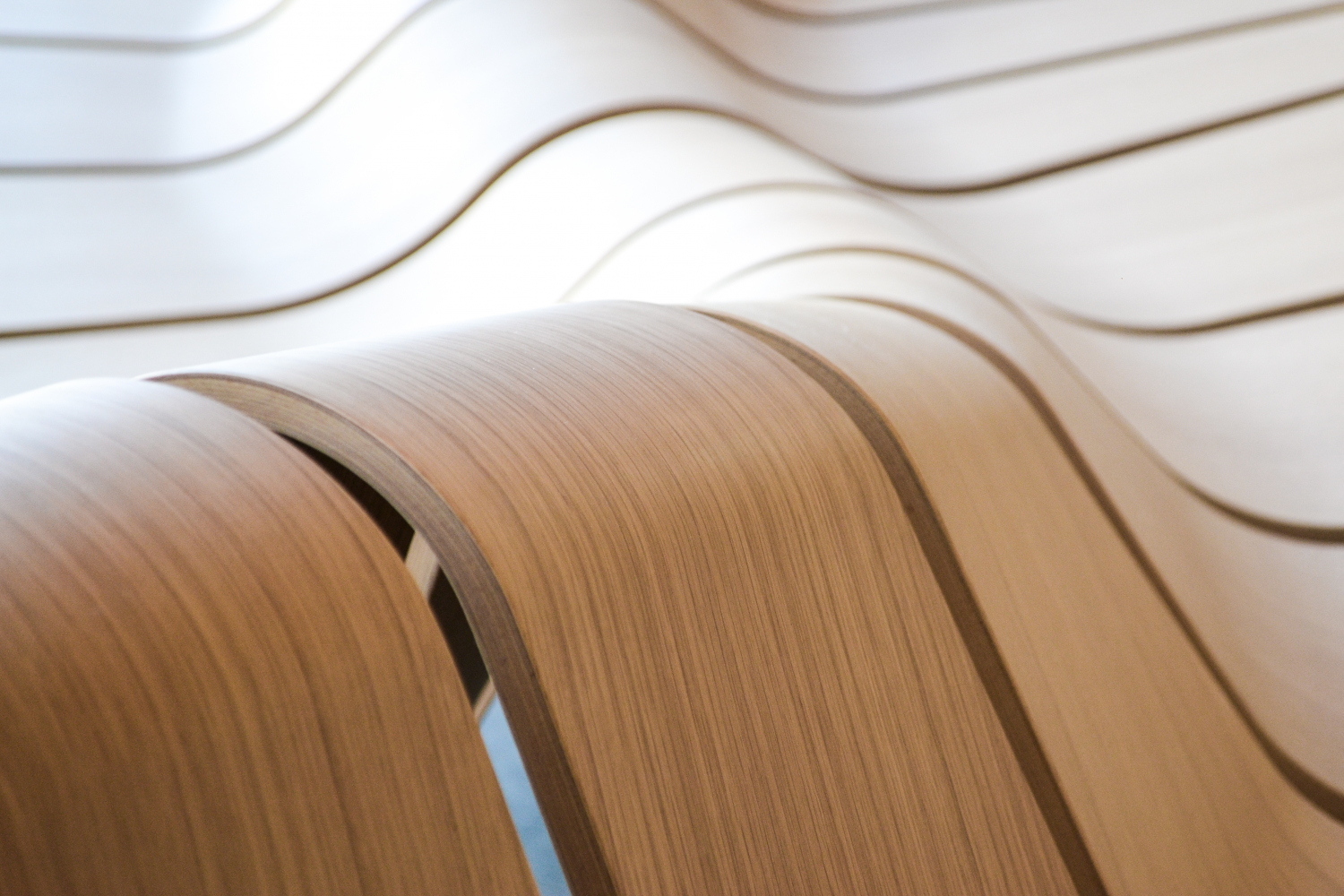
Jonathan Nilsson, CEO at Green Furniture Concept;
“Like all our furniture, Ascent is space-saving, durable, easy to maintain and designed for visitor satisfaction. We have been thinking about how to evolve the beam seater areas for a long time. Ascent is the result. We have designed a toolbox for architects and designers to play with, and we’re so excited to see what they can create with this modular system that offers many possibilities”.
Green Furniture Concept makes placemaking sustainable design for public interior areas. Configurably winding, seamless seating and acoustic lighting from Green Furniture can be found at airport terminals, universities, schools, offices, railway terminals, and healthcare receptions all over the world. Places like Dublin Airport, Topanga Mall (LA), London Victoria Station, and Stockholm Central Station.
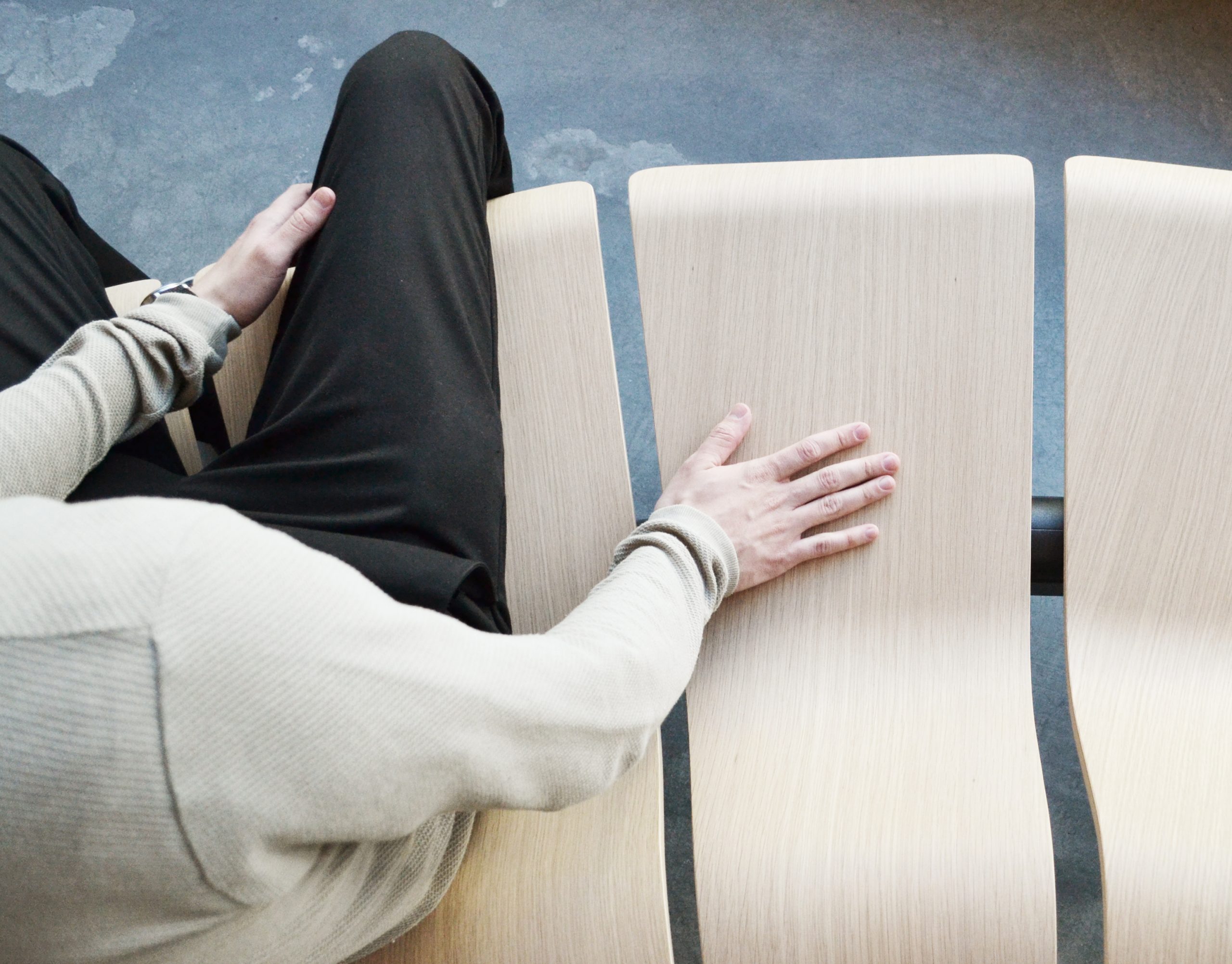
Building unique communities
Green Furniture Concept helps to build community through the placemaking concept by designing public benches with shapes that invite physical interaction and open conversation. Lines flow and curve, allowing relaxation and easy communication.
Understanding the importance of flexibility and individuality in placemaking, the design is modular and adaptable; architects are welcoming this into their architectural toolbox when designing public places.
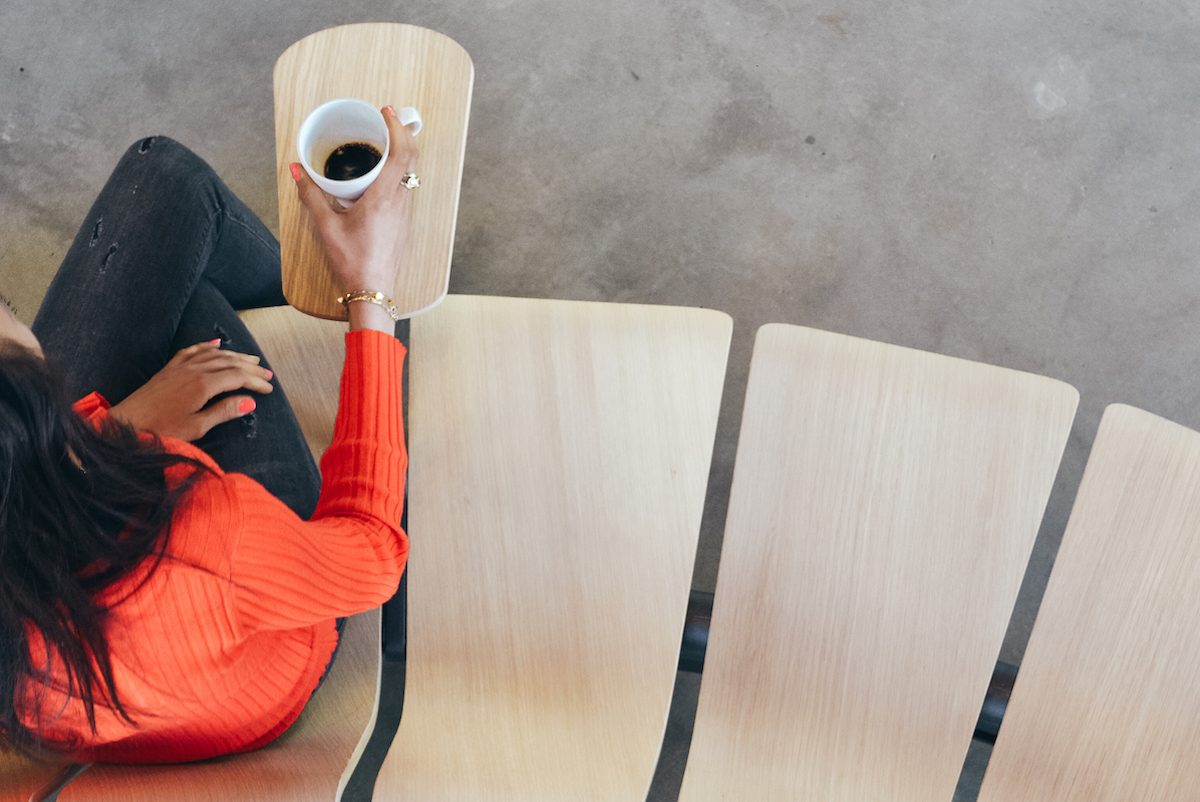
Context is key. Airport lounges or stations can be stressful, with all the tiredness and high emotions from a thousand individual journeys requiring rest points and a sense of calm. In contrast, schools need inclusive seating and meeting points to encourage confidence in shy students and help in building groups.
